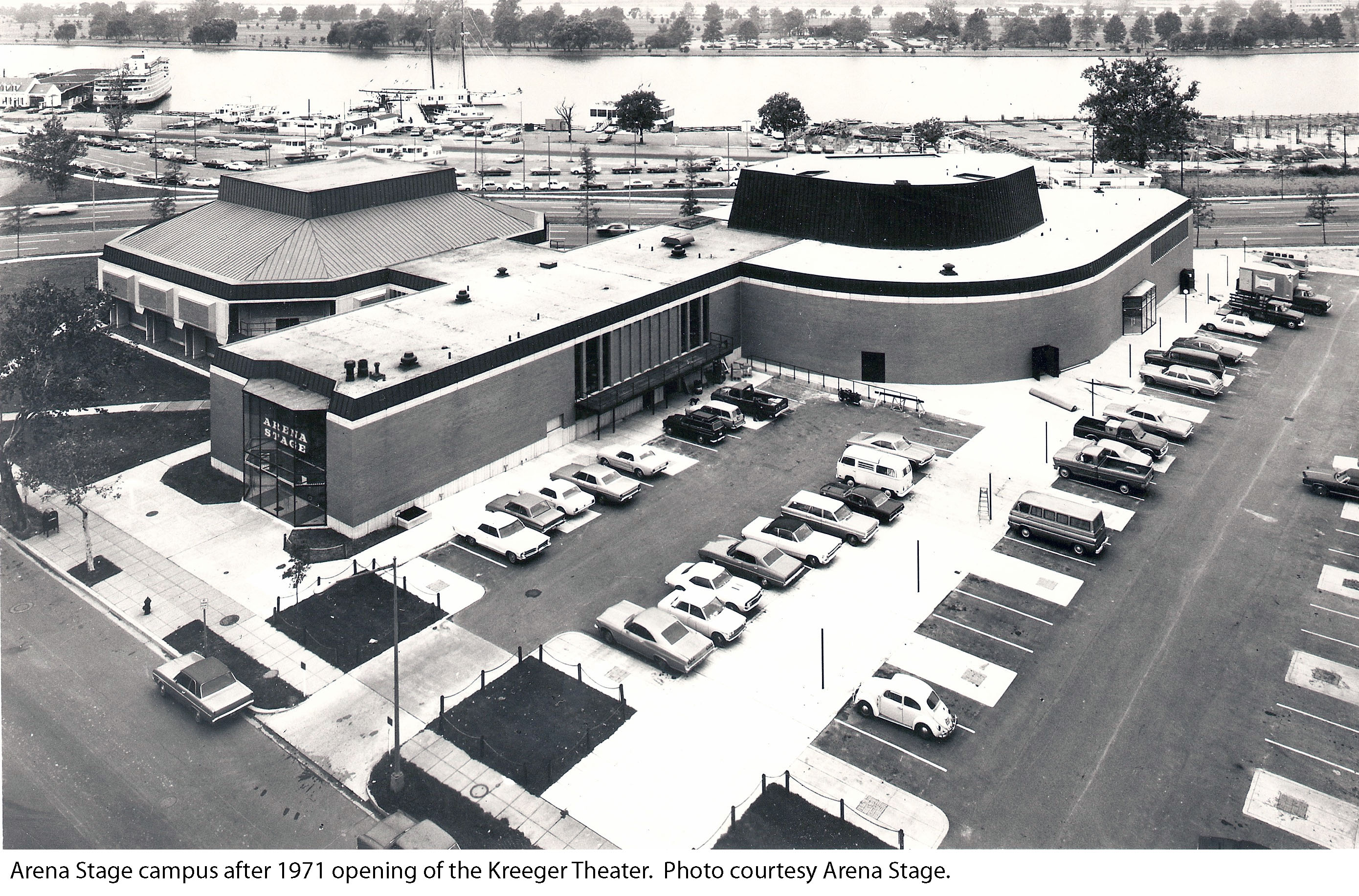The Mead Center History
Where American Theater Lives
Founded August 16, 1950 in Washington by Zelda Fichandler, Tom Fichandler and Edward Mangum, Arena Stage is a flagship American theater. We were one of the first nonprofit theaters in the U.S. and a pioneer of the regional theater movement. We were the first regional theater to transfer a production to Broadway, the first invited by the U.S. State Department to tour behind the Iron Curtain, and the first to receive the Regional Theater Tony Award. Taking a leadership role in extending theater’s horizons, we have implemented groundbreaking policies and programs, promoting diversity in all aspects of theater, from theatergoing to production.
From the monumental to the developmental, we’ve helped build the canon of American theater as we’ve nurtured artistic growth and engaged our community, broadening and intensifying the theatrical experience for one and all. Arena Stage has nurtured and produced 22 productions that have had a life on Broadway, including Dear Evan Hansen (winner of the 2017 Tony Award for Best Musical); Sweat (winner of the 2017 Pulitzer Prize for Drama); The Velocity of Autumn (directed by Molly Smith); A Night with Janis Joplin; A Time to Kill; Steppenwolf Theatre Company’s Who’s Afraid of Virginia Woolf? (a co-production with Arena Stage); Looped; Next to Normal (winner of the 2010 Pulitzer Prize for Drama); 33 Variations; Execution of Justice; Accidental Death of an Anarchist; K2; Tintypes; The 1940's Radio Hour; Loose Ends; A History of the American Film; Zalmen, or the Madness of God; Boccaccio; Moonchildren; Raisin; Indians; and The Great White Hope.
Arena Stage is alive as a center for American theater in our nation’s capital with productions, diverse and innovative works from around the country and the nurturing of new plays. Our focus is on American artists. We produce and present all that is passionate, exuberant, profound, deep and dangerous in the American spirit. We explore issues from the past, present and future that reflect America’s diversity and challenges. These are voiced through the productions we create, the work we develop, the presentations that move beyond our stages and community and education programs that engage artists, students and audiences.
Additional Arena & Mead Center History
Arena Stage Fact Sheet | History of Arena Stage | Leadership at Arena Stage
Building Timeline | Mead Center Project Fact Sheet | Production Timeline

















